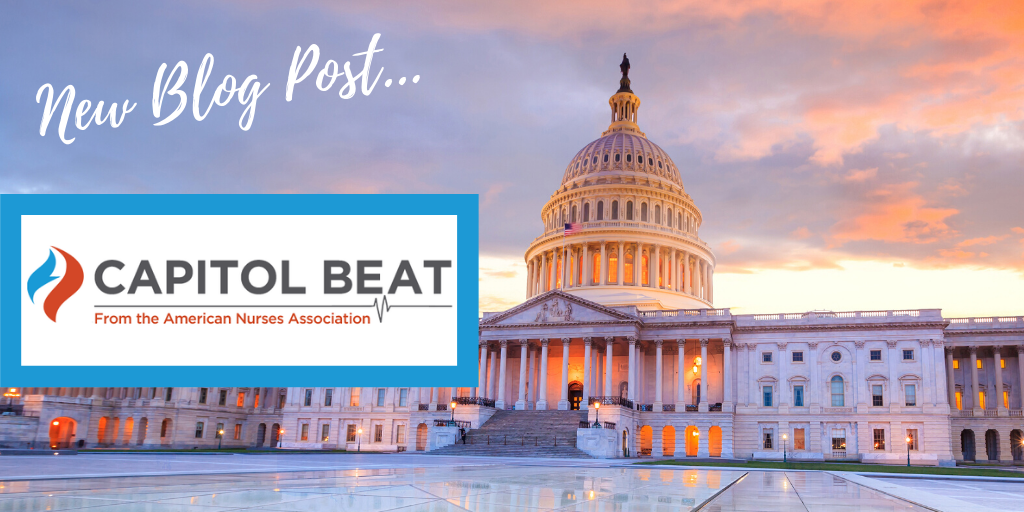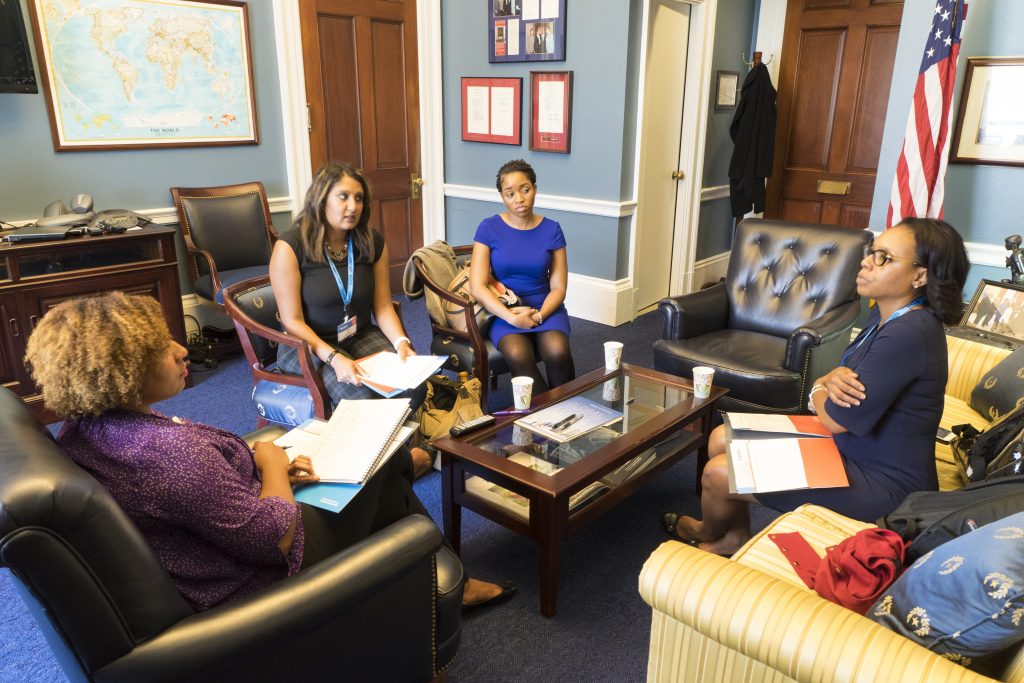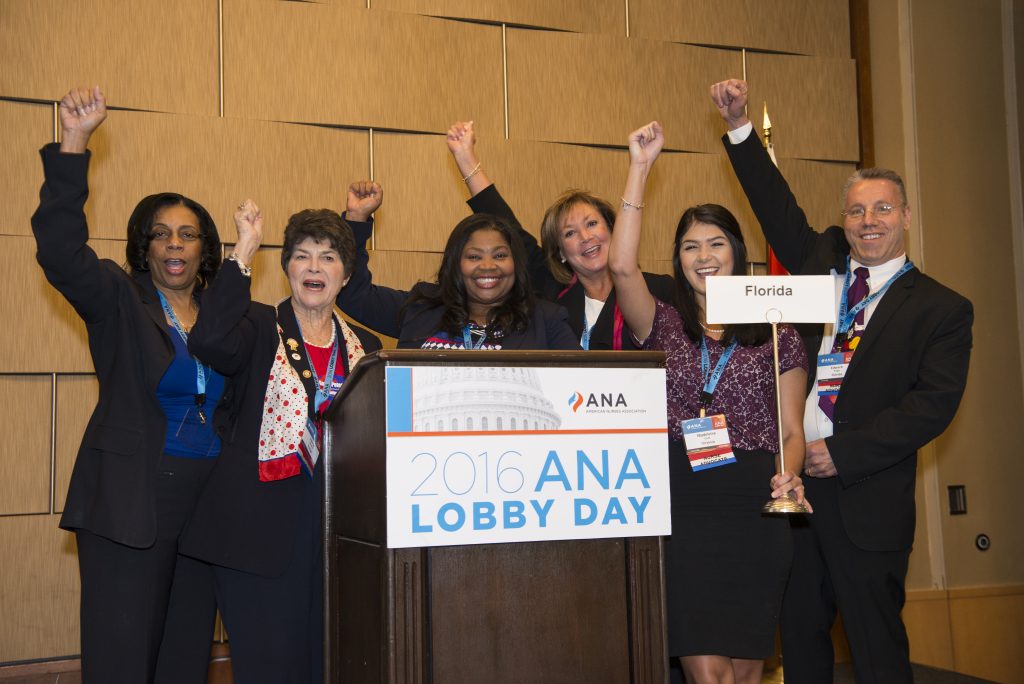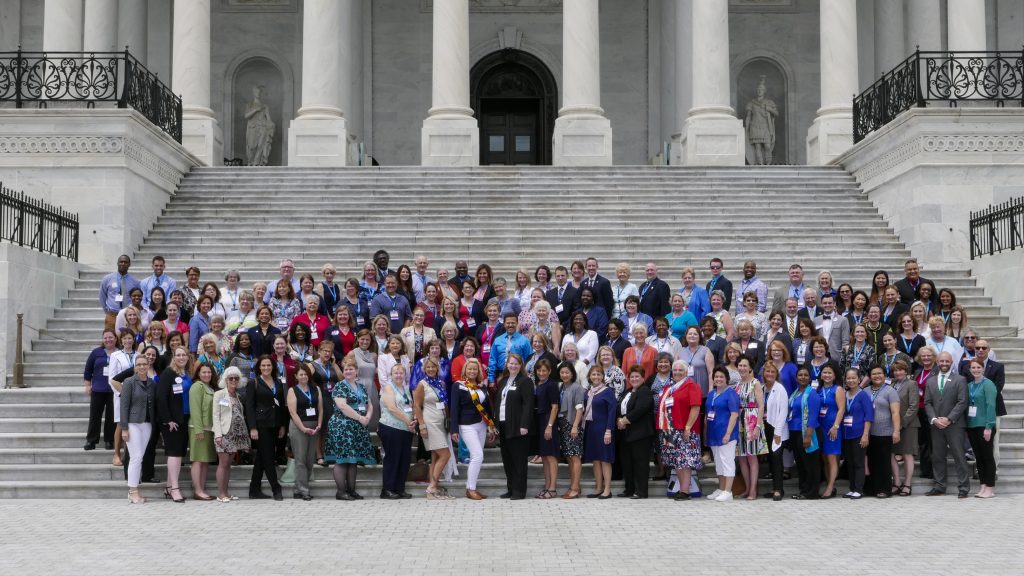What a historic year it has been on so many levels. Leaving behind the first year of a new decade that saw struggles which we could not have foreseen in January 2020, and going into a holiday season that looks vastly different from years passed and a future that is still unclear – it’s easy to focus on the negative. However, despite the trials and tribulations of this year, it is important and inspiring to recognize all of the ground-breaking work that ANA and nurses have done in the policy, government affairs and advocacy spaces, as we look towards what is on the horizon in 2021.
At the time of publication, Congress is in the process of passing a year-end package that will avert a government shutdown, include money for vaccines and COVID-19 aid to frontline workers, boost the economy, and include language to protect patients from surprise billing for health care. ANA has been working with our allies in Congress, and advocating to get these items addressed. Please be on the lookout for further details on the year-end package by visiting ANA’s new advocacy page. In the meantime, let’s acknowledge the progress made throughout 2020, which was necessitated by the COVID-19 public health emergency (PHE).
Earlier this year, the U.S. Congress and the President signed into law the Coronavirus Aid, Relief, and Economic Security (CARES) Act. Included in the law is language that reauthorizes Title VIII Nursing Workforce Development Programs and authorizes Nurse Practitioners (NPs) and Clinical Nurse Specialists (CNSs) to order home health care for their patients. These are longtime ANA federal legislative priorities, and we applaud Congress and the administration on their passage in the early stages of the pandemic. Advanced Practice Registered Nurses (APRNs) like NPs and CNSs are key to COVID-19 care and maintaining access to non-COVID-19 care throughout the crisis.
By summer, ANA was becoming a regular voice for nurses as Congress sought additional solutions to PHE challenges in the healthcare system. ANA President Ernest Grant testified at a hearing before the Senate Finance Committee, “Part 2: Protecting the Reliability of the U.S. Medical Supply Chain During the COVID-19 Pandemic.” Dr. Grant was there to answer the many questions Senators had about the impact of COVID-19. Questions ranged from what more the federal government could do to strengthen the supply chain, to the needs of nurses on the ground.
ANA also responded on behalf of nurses to proposals outlined in a white paper released by the Senate Health, Education, Labor, and Pension (HELP) Committee. The Committee requested input on what the U.S. had learned from the past 20 years of public health preparedness and response, and how we can better prepare for future pandemics. ANA’s response focused on how to rebuild and maintain state and federal stockpiles, improving public health capabilities, and increasing medical supply surge capacity and distribution.
ANA has been consistently present with effective advocacy on personal protective equipment (PPE), which has been in short supply all year. As a result, the enterprise was tapped as leadership of a broad-based the coalition that will be a united voice to Congress and the administration on PPE and supply chain issues, to improve public health.
As we pivot to start working with the incoming administration, ANA has hit the ground running, providing substantive recommendations to transition leaders, and applauding the appointment of a registered nurse to President-elect Biden’s COVID-19 Task Force. We have communicated the many ways in which ANA and nurses can be a resource to the transition and the upcoming administration. We continue to solidify relationships to ensure that ANA will maintain a strong voice in the White House and key agencies in the months ahead.
Like the rest of the Policy and Government Affairs team, the ANA Political Action Committee (ANA-PAC) experienced a very successful year in 2020 despite the multitude of challenges it faced at the start of the pandemic. For starters, the PAC continued its winning streak with a 95 percent win rate in the 2020 general election for the nearly 100 candidates the PAC supported based on their pro-nursing agendas. Members of ANA drove their support unlike in years passed to the tune of over 5,600 contributors to the PAC which was an increase of 34 percent over 2019 and counting! And it doesn’t stop there: the financial strength of the PAC continues to improve as receipts are up 3 percent over last year and this number only continues to grow as we head toward the year end. Policy and GOVA will be spending the early part of 2021 strategizing our support for our existing nursing champions and starting new outreach efforts to those new freshman members of Congress. Stay tuned for updates in the next ANA-PAC quarterly newsletter.
ANA advocacy on federal regulatory policy has also strengthened nurses and demonstrated the power of nurses’ voices. With the COVID-19 PHE extended until March 2021, Medicare payment flexibilities gained in 2020 will continue. A number of these provisions expand access to APRNs for non-COVID-19 care as well as COVID-19 care, which has been a boon to patients and their providers throughout the pandemic, especially in rural areas.
The readiness of the Centers for Medicare and Medicaid Services (CMS) to remove regulatory barriers to practice has come as a result of direct advocacy over the years by ANA and partner organizations. The voices of frontline nurse providers were also heard, as CMS gathered first-hand accounts and created space to share this information on regular conference calls with nurses about the impacts of COVID-19 on their practice.
The pandemic has demonstrated the value of APRNs across the health care system, and CMS’ actions tell us that Medicare leaders are hearing us. The future is indeed bright, as CMS continues to review unnecessary barriers and craft regulatory relief. ANA policy leaders are right there, urging specific changes, and making a powerful case for making permanent changes to expand access to APRNs. We saw some success in the physician payment rule for 2021, which removed federal restrictions on APRN supervision of diagnostic tests.
CMS was not the only agency hearing nurses’ voices as important decisions were made. Early and often, ANA repeatedly called for steps to improve protections for frontline providers, including a return as soon as possible to pre-pandemic standards for PPE.
We made our case to the Occupational Safety and Health Administration, the Office of Minority Health at HHS, the Department of Veterans Affairs, Federal Emergency Management Agency, Government Accountability Office, and the White House Economic Advisors. ANA has become the “go to” organization for agency staff when they hear about events happening on the ground to work together to improve conditions for nurses.
The pandemic made ANA’s presence even more valuable with the American Medical Association’s (AMA) RUC and CPT committees, which are the driving force for health care reimbursement. ANA CPT advisors were at the table when the CPT codes for both the Pfizer and Moderna vaccines were developed. In a separate process, ANA advisors were consulted to account for increased practice expenses incurred during the pandemic. Throughout, ANA engaged feedback and comment from the nursing community. All of these accomplishments could not be done without the loud impassioned voice of our ANA members and RNAction advocates. This united voice sent nearly 460,000 letters to Congress, responded to public comments and engaged in several surveys where the results were presented to Congressional offices across Capitol Hill. All of the input from nurses, our nation’s most trusted profession for 18 straight years, directly impacted legislation and policy throughout the year. We have you to thank for that – your efforts on the frontlines, your expertise and your advocacy do not go unnoticed. With over 200,000 RNAction advocates, we are poised to improve the profession of nursing and conditions for your patients again in 2021.




